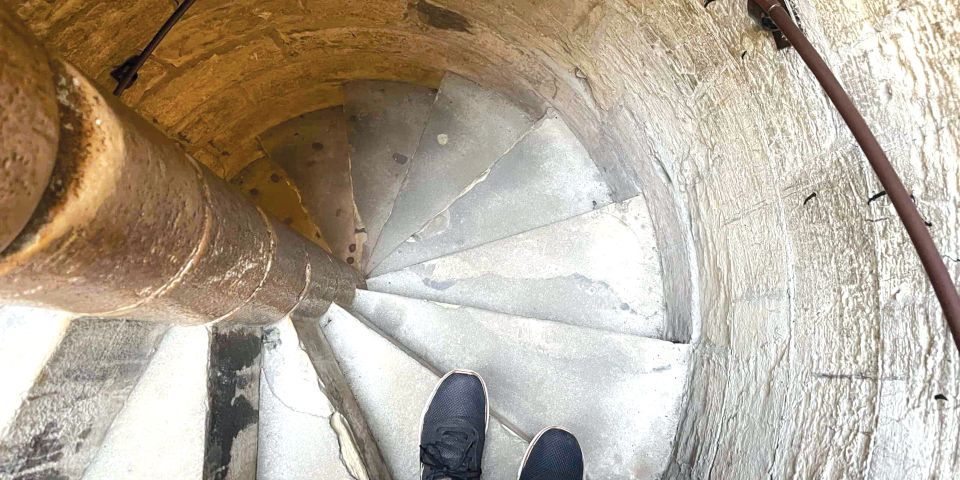
The highs and lows of vulnerability
Dave Newton shares the lessons he learnt while standing at the top of a 66m-high cathedral tower.
“Just a few more steps,” I exclaimed, encouraging my then four-year-old son as we sought to conquer the 325 dark and uneven steps to the top of the Cathedral tower in Durham. “We’ll be able to see so far.”
Little did I know that as we completed our ascent and stepped out onto the roof, my son would be overcome with a spirit of adventure as I stood frozen with fear knowing I was responsible for the safe return of our boy to his mother from this 66m-high tower!

Vulnerability is often considered a desirable trait until we are truly faced with the reality of it. How many times, if we are honest with ourselves, would we trade safety and security for genuine vulnerability? As my feet were frozen to the spot considering the great heights to which we had climbed and the potential danger we now faced, I could do nothing other than call out to my son as he tore around the roof enjoying the freedom and views and expressing his sense of adventure.
What surprised me most at that moment was my unwillingness to admit my need, to be honest about my fear or to seek help. So, rooted to the spot, through gritted teeth I sought to restrict my son’s adventure to make me feel safer and in control.
Brené Brown, the American research professor, lecturer and author said: “Daring greatly means having the courage to be vulnerable. It means to show up and be seen to ask for what you need; to talk about how you’re feeling; to have the hard conversations.”
We are living in times when those around us are facing a tide of circumstances and situations that can lead to vulnerability: rises in the cost of living, food poverty, environmental changes, anxiety and mental health, not to mention increasing pressure on public services and the political landscape. It has been said that in ministry we swim in the sea of others’ vulnerability.
So how should we respond? Do we put on a brave face, grit our teeth and pretend we have it all under control? As Jesus' followers, how should we respond not only to the challenges we face but also to the needs of others around us?
Honesty
As Jesus' followers, we have no choice but to lead with honesty. As Jesus faced moments of loss, separation and tiredness, he didn’t hide the reality of the situation. He was quick to carve out time with his Father, to be open with those around him and equally be honest with himself. He took the time to sleep, pray or withdraw on his own or with friends to recharge and reconnect.
“Vulnerability sounds like truth and feels like courage. Truth and courage aren’t always comfortable, but they’re never weakness,” (Brown).
Dependence
The second thing this vulnerability does is drive us to a place of dependence. We all like to feel like, or give the impression that, we have things under control, that the stresses and strains in life aren’t too bad and that we can plan, navigate or work to find a way through.
Jesus on the other hand suggests a different path. “Cast ALL your cares on him, because he cares for you” (1 Peter 5:7). We were not created for independence but rather a radical dependency and abiding in the Father.
Others
One danger we can find when embracing vulnerability is that it may leave us paralysed. We can become so aware of our weaknesses and potential frailties that this can dominate our thoughts at the expense of others. Our perspectives can limit others’ adventures or lead us to ignore the needs of others because we are so self-absorbed.
Paul exhorts us: “Do nothing out of selfish ambition or vain conceit. Rather, in humility value others above yourselves, not looking to your own interests but each of you to the interests of others” (Phil 2:3-4).
As I stood glued to the roof of Durham Cathedral, I had a choice to make. I could try to deny and hide my fear and restrict the adventure of my enthusiastic son, or I could embrace my vulnerability, increase my reliance on God and invite my son to help me embrace his adventure.
Moreover, we might as well embrace the aerial view of this great city before the 325-step descent!
This article first appeared in the December 2022 edition of Direction Magazine. For further details, please click here.
Enjoy this article? Don't forget to share